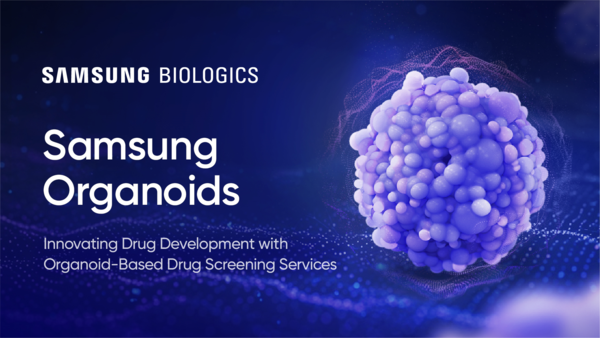Samsung Biologics has officially launched a new organoid-based drug screening platform, “Samsung Organoids,” as part of its strategic expansion beyond contract development and manufacturing organization (CDMO) services into clinical research organization (CRO) capabilities.

Organoids, derived from stem cells or tissue samples, are cultivated into miniature organ-like structures. Compared to conventional methods, they offer up to 85 percent patient similarity, allowing for faster and more accurate assessment of drug efficacy and toxicity at a lower cost.
The move aims to secure earlier collaboration with client companies and enhance the company's competitive edge in securing long-term partnerships.
The newly unveiled Samsung Organoids service offers high-quality preclinical drug screening using patient-derived cancer organoids, which are three-dimensional cell cultures mimicking human organs.
The company expects that the technology will significantly reduce reliance on traditional cell and animal models by addressing key limitations such as low patient resemblance, high costs, and ethical concerns.
Samsung Biologics plans to initially focus the organoid service on cancer drug discovery, leveraging its extensive experience in current good manufacturing practices (cGMP). The company has received a total of 359 manufacturing approvals from major global regulatory bodies, including the U.S. FDA and the European Medicines Agency (EMA).
This background ensures robust quality control, precise sample processing, and rigorous data integrity for the new offering.
Samsung Biologics sees the launch of Samsung Organoids as a critical step in advancing its three-pillar growth strategy -- scaling up manufacturing capacity, diversifying its service portfolio, and expanding global reach. The company plans to continue investing in adjacent technology areas, including antibody-drug conjugates (ADCs) and adeno-associated virus (AAV) vectors, further broadening its capabilities in biologics development and manufacturing.
“Our new screening service will help reduce development risks and accelerate timelines for our partners by offering accurate insights at an earlier stage of drug development,” Samsung Biologics CEO John Rim said. “We are committed to developing innovative technologies and services that address the evolving needs of our clients and enhance satisfaction across the drug development lifecycle.”
According to Research and Markets, a market research firm, the global organoid market will grow from $1 billion in 2024 to $3.3 billion by 2030, representing a compound annual growth rate of 22 percent. Growth is expected to accelerate following the FDA’s recent policy shift in April to reduce animal testing and support alternative models such as organoids.
Related articles
- Samsung Biologics inks $75 million CDMO deal with European pharma firm
- Samsung Biologics racks up $320 mil. in 2 new CMO deals
- Samsung Biologics to spin off biosimilar biz to establish Samsung Episholdings
- Samsung Biologics to showcase ADC CDMO strategy at Interphex Week Tokyo 2025
- Samsung Biologics posts solid Q2 earnings amid slight dip in sequential revenue

